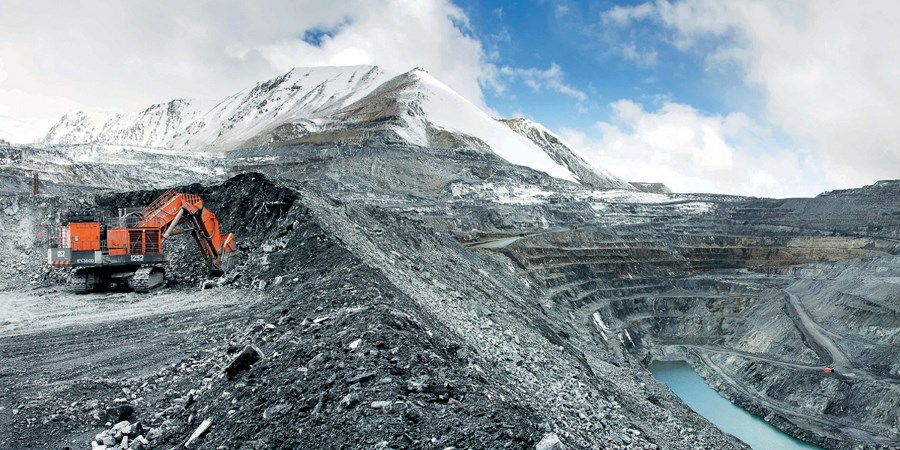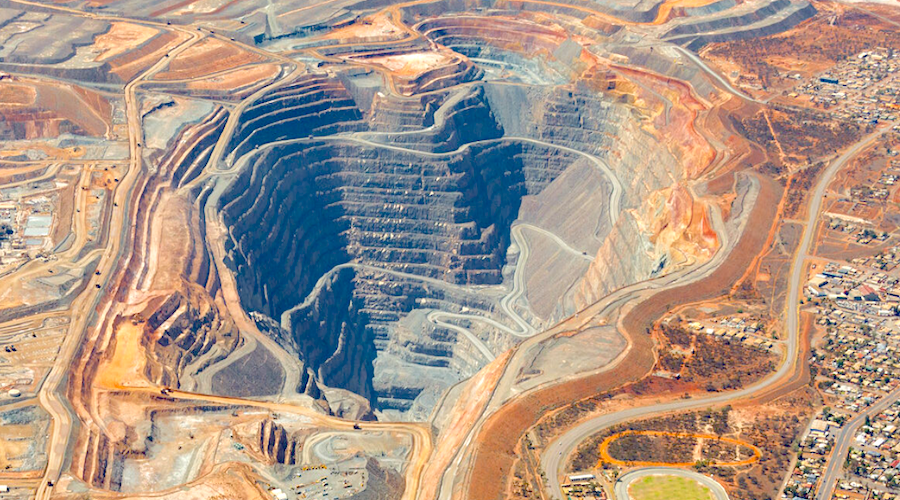Centerra Gold’s presence in Turkey

Centerra Gold, a Toronto-based Canadian company, appears in the news regarding its troubles in Kyrgyzstan and its operations at the Kumtor gold mine. The Kumtor project has been in flux because of strife between the wholly-own subsidiary Kumtor Gold Company (KGC) and the country and the country’s citizens. Centerra’s other projects receive less publicity or no publicity at all. Centerra has lucrative mining projects in Mongolia and Turkey. However, Centerra’s recent projects and acquisitions indicate less reliance on Kumtor leading to diversification of projects and identifying alternative and lucrative projects in more political stable and mining-friendly nations.
Centerra’s other project in Öksüt, in Turkey’s south-central Kayseri province (295 km southeast of Ankara), was discovered in 2007 by Stratex International PLC. In 2009, a joint venture was formed between Stratex and Centerra Gold to explore the mine. Centerra acquired the last 30% holdings of Öksüt from Stratex in January 2013 for $20 million. There are two zones within the project: Keltepe and Güneytepe. Turkey currently has 9 gold mines (including the Oksut project) and is Europe’s and the Mediterranean’s top gold producer. Many of Turkey’s large gold deposits are operated by foreign companies. The country already has producing and massive gold deposits with the Çöpler mine managed by Alacer Gold. The Eldorado Gold Corporation operates the low-grade bulk tonnage Uşak-Kişladag Gold Mine with a mine life of 17 years and the Efemçukuru, a high-grade underground operation in Izmir, with a mine life of 12 years.
Centerra Gold received environmental approval in December 2015 by Turkey’s Ministry of Environment and Urbanization to move forward on Öksüt. Gold production should begin in the second quarter of 2017; initially production would begin during the third quarter. The gold reserves of the Öksüt gold mine “project were 26.1 million tonnes at an average grade of 1.4g of gold a tonne, containing 1.2 million ounces of gold,” citing figures from Mining See. The life span of the project will be 8 years and the mine recovery was assessed at 77% by Centerra. In 2013, the project was assessed to have a lifespan of 11 years and have two possible heap leach beds.
In April 2016, Centerra’s wholly-owned Turkish subsidiary Öksüt Madencilik Sanayi ve Ticaret A.S. (referred to “OMAS”) has entered into a project financing term loan facility for its Öksüt Project in Turkey and the European Bank for Reconstruction and Development (EBRD) is extending a $75 million loan for the development and operation of the mine; the loan is part of an existing $150 million project financing facility underwritten by UniCredit (German global finance firm) announced in August 2016.
Mining companies have a social engagement plan or a social development fund in mining areas. Centerra identified during a presentation of Öksüt that Centerra is about relationship not benefit negotiations and is not about buying popularity. Centerra, for this product has proposed the following projects: donations of food packages to poor residents; quick impact projects such as renovation of the Öksüt primary school and the Zile mosque; community awareness efforts such as dental hygiene and basic health services; and cultural projects such as a painting competition and Develi Town festival. The total budget for community investment in 2016 totaled $250,000. During the planning assessment Centerra hired a female coordinator as women do not voice their concerns over these matters—this move reflects a more liberal and inclusive approach to Centerra’s community engagement in the Öksüt project to bring in typically underrepresented groups to the development aspect of the mine.
According to the EBRD, Öksüt will adopt “measures to manage and avoid cyanide related risks including implementation of a cyanide management plan, a closed loop system with no discharges and compliance with the International Cyanide Management Code (ICMC).” Gold mining requires the use of cyanide which has long been an environmental concern as spilling and contamination of water (drinking and irrigation) is a possibility and has occurred elsewhere.
Centerra also had interest in the Enez project in Thrace in Western Turkey. There is a lack of current reporting on this project determined by research for this analysis. Information from 2013 Stratex International stated, “in 2011, Stratex signed an agreement with Centerra to advance its Altunhisar project in Turkey” and that Centerra had “the option to fund US$1.145 million to acquire a 51% interest in the Project.” The most current information on the Enez project was from Stratex in 2014.
Turkey reformed its mining code in 2010. Like many deposit-rich countries there is high potential for mining and regulations and rule of law present obstacles. Countries wishing to attract foreign investors must provide investment opportunities. Turkey provides the following benefits: reduced corporate tax rate, VAT and customs exemption, land allocation and social security premium support, and insurance. Turkey has begun to privatize its mining sector.
Like Kumtor and Gaatsurt, there are always planning and operational risks posed by governments, security (physical and economic), and the risks can be mitigated. The July 2016 coup attempt in Turkey has no visible impact yet on the country’s willingness to let foreign-owned mining companies operate in the country as Erdogan’s coup response targeted the sympathizers of cleric Fethullan Gulen.
Samantha Brletich is an analyst at the U.S. Department of Defense. She specializes in Central Asia.
{{ commodity.name }}
{{ post.title }}
{{ post.date }}




Comments